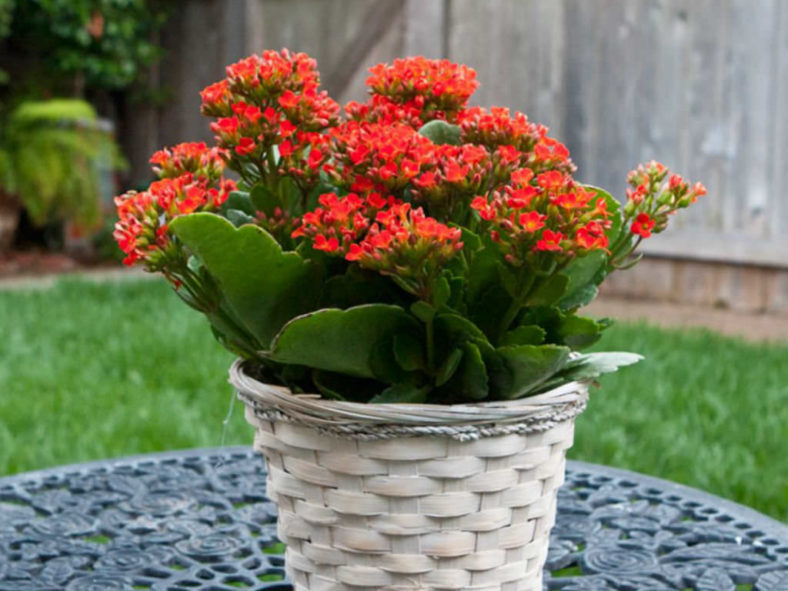Kalanchoe blossfeldiana, commonly known as Flaming Katy, is a tropical succulent native to Madagascar. This flowering plant is most widely grown as a houseplant, but grows well outdoors in USDA Plant Hardiness Zones 10 and 11. A short-day plant, Flaming Katy, produces blooms during the winter months. Young plants have smooth stems and thick leaves. This plant is easily propagated by stem cuttings. It roots readily from a vegetative shoot, and most growers use this type of propagation for Flaming Katy.
1. Cut cleanly through a vegetative stem of the Flaming Katy. This is a stem that has no flower growth. Make the cutting at least 3 inches (7.5 cm) long. Set the cutting in an empty pot for 2 or 3 days to allow a callous to form over the cut flesh of the stem. The callous keeps the cutting from rotting in the growing medium.
2. Mix equal parts of sand, perlite, and peat moss to create a quality growing medium for Flaming Katy cuttings. Fill a sterile pot with the growing medium and water the medium lightly. The size of the pot dictates how many cuttings you can root per pot. For example, pots that are 3 or 4 inches (7.5 or 10 cm) hold one cutting, while 5- or 6-inch (12.5 or 15 cm) pots hold 2 or 3 cuttings.

3. Make a hole in the growing medium and stick the calloused cutting into the hole. Firm the soil around the cutting to keep the Flaming Katy upright. Set the pot in a sunny location with an average temperature of about 70°F (21°C). Avoid direct sunlight on the cuttings.
4. Mist the cuttings several times per day. Remove cuttings that show signs of fungal growth. Check for roots after about two weeks. Gently pull on the cuttings to feel for resistance, which would signify root growth.
5. Transplant the new Flaming Katy plants into separate growing pots when the roots have reached about 1 inch (2.5 cm) in length. Treat the plant as a seedling for the first few weeks. In other words, avoid drafts, direct sunlight, and drought conditions. When you see new growth on the Flaming Katy plants, place them as desired in the home.
Source: sfgate.com
Links
- Back to genus Kalanchoe
- Succupedia: Browse succulents by Scientific Name, Common Name, Genus, Family, USDA Hardiness Zone, Origin, or cacti by Genus